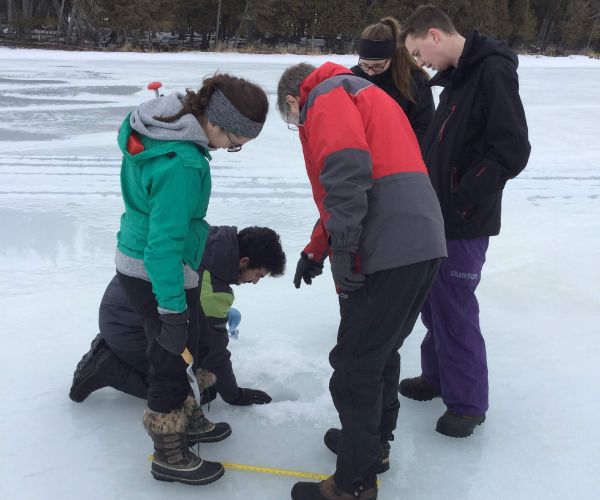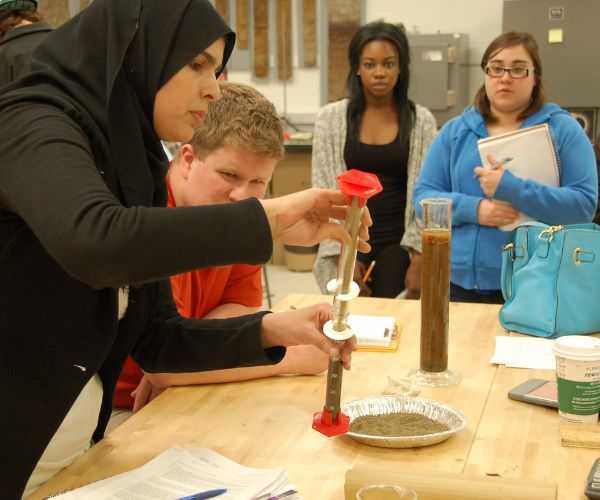Visit Carleton! Book your tour today.
Program Details
Explore the natural environment, from the smallest grain of sand to the entire planet. Gain an understanding of the complex interactions among Earth’s environmental systems: the atmosphere, hydrosphere, biosphere and lithosphere. Learn to analyze and manage human-environment interactions and impacts that integrate elements from chemistry, mathematics and physics, soil science, hydrology, geomorphology, glaciology, meteorology and biogeography.
A Bachelor of Arts in Geography with a concentration in Physical Geography is also available.
Study What Interests You
Courses cover topics such as climate change, water resource analysis, natural resource management, ecosystem science, quantitative methods using geographic information systems (GIS) and remote sensing, statistical analysis and environmental models.
Unparalleled Learning Opportunities and Resources
Explore Carleton’s MacOdrum Library, housing extensive resource materials for geographers, including a collection of over 166,000 digital and paper maps. The Department of Geography and Environmental Studies also houses a state-of-the-art computing lab for GIS analysis, and our faculty members conduct research using cutting-edge research tools and instruments for land surveying, environmental monitoring, laboratory analysis and environmental computation.
Capital Advantage
Ottawa is rich in study resources vital to the geographer, such as Library and Archives Canada, the Canada Centre for Mapping and Earth Observation, Statistics Canada, and other federal government departments.
Work Experience
Both fieldwork and laboratory techniques are emphasized with opportunities to participate in Co-op and work placements.

Get started in Carleton360 to receive tailored information on our programs, student services and community.

Career Outcomes
Explore your passions, refine new skills and discover the career that’s right for you.
As a geographer, you will have a strong social and natural science base that makes a range of career possibilities available to you.

Sample Courses
GEOG 1010 - Global Environmental Systems
Principles, processes and interactions in the Earth's environment emphasizing the flow of energy and matter within global systems. Atmospheric and oceanic processes, earth surface processes and biogeochemical cycling. Case studies on the interaction between human activity and the natural environment.
GEOG 4017 - Global Biogeochemical Cycles
Processes that control the fluxes and reservoirs of biologically active chemical constituents on land, in the atmosphere, and in the oceans. Interactions between biogeochemical cycles and the Earth's climate; impact of land use and fossil fuel emissions on biogeochemical cycles and global change.
Visit the Undergraduate Calendar to view a comprehensive list of course offerings for this program and discover the exciting things Carleton students are learning in the classroom!

